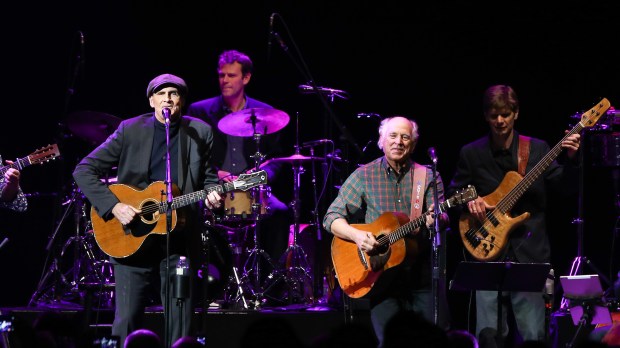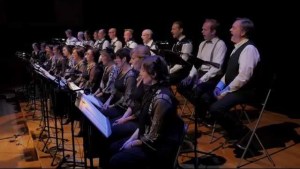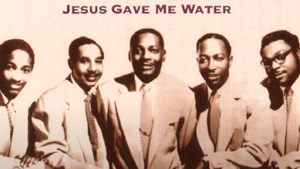This past December, I had the opportunity to see Jimmy Buffett in concert in Orlando, Florida. By my reckoning, the 2020s is my sixth decade during which I have heard Jimmy perform. As a convert to Catholicism, I am filled with gratitude for how Jimmy’s music has enriched my life
Growing up in Florida during the 1970s, Jimmy’s music was always in the background. As a teenager, I made frequent trips to Anna Maria Island with my relatives and friends. Listening to Jimmy on fishing trips and beach excursions was as natural as hearing the tide come in. His music, now as then, caught the mood and atmosphere of old Florida. For me, that meant cast-netting mullet with my Uncle Howard, catching lobster in the Florida Keys, drifting across the chain-of-lakes in my hometown of Winter Haven, and enjoying sunsets with my extended family on Anna Maria. Jimmy’s music evokes and complements all of these realities.
The first concert
I attended my first Jimmy Buffett concert in Lakeland, Florida in the waning days of the 1970s—and two concerts there in the early 1980s—when I was a high school student in Winter Haven. I recall that on concert Fridays my friends and I never attended class, but instead prepared ourselves for the shows by hanging out at a pool all day. This party attitude, present at every Jimmy Buffett concert, encapsulates what many people perceive to be the central impulse of Jimmy’s music.
As I learned in the ensuing years, it is not so. For while some of Jimmy’s tunes have hedonistic overtones, his music is almost always ordered toward the building of genuine fellowship among friends. As he says in “Changes in Latitudes, Changes in Attitudes,” “Ran into a chum with a bottle of rum and we wound up drinkin’ all night.” The “bottle of rum” and the “drinkin’ all night” do not mean anything without the “chum” that you first run into! While my lack of maturity prevented me from fully receiving Jimmy’s music in my high school years, I was drawn to this sense of camaraderie that it promotes and celebrates.
My conversion to Catholicism
Before attending a concert in New Orleans in 1996, my life changed a lot. I converted to Catholicism, was married, and became a father. I also commenced theological studies at Marquette University, and later became a professor of Theology at Benedictine College in Atchison, Kansas. While that may not sound like a typical career path for a Jimmy Buffett fan, I am convinced that Jimmy’s music harmonizes well with a Catholic world-view.
While some of his music suggests an anti-Catholic sentiment—and Jimmy himself left the faith after attending Catholic school in his youth—most of his songs actually reflect a Catholic consciousness. They are at their core a celebration of the goodness and beauty of the world which matches the listener’s experience. For example, the words, “I like the smell of fresh snapper fried light” in “Landfall” resonate with me, for I have spent many nights on the Gulf of Mexico catching snapper, and frying those fillets smells incredible. Jimmy’s music contains a cornucopia of these small epiphanies of the glory of creation—from the familiar comfort of “One Particular Harbor” to a fleeting encounter with an “African Friend,” to a game of pong in “Livingston Saturday Night.” As Jimmy says in one of my favorite songs, “The Wino and I Know,” “I’m living on things that excite me, Be they pastry or lobster or love.”
To become enamored with the radical goodness of life in this way—which Jimmy’s music hallows—was for me the first step in becoming Catholic. Indeed, that is a central tenant of the Catholic faith: that the world is so good that Jesus Christ embraced it in his very person, and by embracing it redeemed it, so that we may enjoy it as a gift and as a foretaste of something more. Isn’t that finally what Jimmy’s music is about, that we are called to experience joy? As a Catholic, my desire for “Margaritaville”—for Heaven—defines my life; and not only that, I have a confidence, according to the hope I live by, that I might actually find that “lost shaker of salt!”
An intergenerational audience
During the 2000s, I attended two Jimmy Buffett concerts, one in Minneapolis, Minnesota (2004) and another in Sunrise, Florida (2005). These gatherings were even more meaningful to me than the ones before. I observed that Jimmy’s music touched something universal because his concerts were intergenerational affairs. I saw high school students like my 1979 self, I saw middle-aged fans like my 2004 self, and I saw men and women, like I hoped to be in the future, “Growing Older but Not Up.”
This coming together of the generations is as rare as it is beautiful. At the same time, and I am just being honest, I did not care for some of the circus atmosphere now present at the concerts. When I saw Jimmy play in Panama City, Florida in 1982, or in Palmetto, Florida in 1986, there were no drunken “Parrot Heads” (Buffett fans) wearing Tahiti skirts, just drunken “Parrot Heads” without Tahiti skirts; it was somehow more human.
I took my kids
My next Jimmy concert was in Kansas City in 2011. This was my greatest Buffett experience to date because of the singular privilege I had of bringing my three children along. We spent the hours before the concert singing Buffett songs at make-shift karaoke stands in the parking lots. The thrill of listening to Jimmy perform “The Great Filling Station Hold Up” in the presence of my kids may be one of the highlights of my life! Ten years later, my sons and daughter are pursuing various paths, but I like to think this concert was one of the experiences that formed them.
Some of my Catholic friends asked me at the time, “Aren’t you concerned about your children hearing some of those songs?” Well, it’s true, some (though not many) of Jimmy’s lyrics are a little salty. On the other hand, I would rather my teenagers hear some off-color words in a song that is true to life than a banal piece of music that plays on our emotions but lacks a depth of lived experience.
An argument for Buffett’s Catholic sensibilities
All great art—whether painting, literature, cinema or music—expresses something concrete about the human experience; we see the world through the artist’s vision and are enriched, even if that vision is not explicitly religious. Jimmy’s music, in a myriad of ways, invites contemplation about life and is therefore attractive to a Catholic sensibility.
One powerful example of this is Jimmy’s classic tune“Changes in Latitudes, Changes in Attitudes,” mentioned above. Who cannot relate to this song’s opening lines?
I took off for a weekend last month
Just to try and recall the whole year
All of the faces and all of the places
Wonderin’ where they all disappeared
We all find ourselves reflecting on the path of our life—the faces and the places—and wecan’t help but to feel nostalgia for times gone by. As Jimmy says, “Visions of good times that brought so much pleasure makes me want to go back again.” To ponder life in this way is a fundamental human experience, and yet, Jimmy captures in the refrain what also amounts to our present reality, a recognition that we cannot push a pause button on life, that “nothing remains quite the same.” How we cope with our heart’s desire—a yearning for happiness but our inability to hang on to the moment—is a central question of who we are. Jimmy expresses his approach in the final stanza:
I think about Paris when I’m high on red wine
I wish I could jump on a plane
So many nights I just dream of the ocean
God I wish I was sailin’ again
Oh, yesterday’s over my shoulder
So I can’t look back for too long
There’s just too much to see waiting in front of me
And I know that I just can’t go wrong
From this point of view, our inability to hang on to the moment is inconsequential given the allure of “sailin’ again” and all the things that await us in the drama of life. While this is a fair point (I too “dream of the ocean” and look forward to more fishing trips with my friends), doesn’t this bring us back to the start of the song after these additional exploits run their course? Our propensity for new adventures doesn’t finally fulfill our longing for enduring happiness, but just indicates that we can’t shake this desire. This song reminds me that I really am ordered toward lasting joy, but try as I may, it always lies just out of reach—as if I am on my way to Margaritaville but can never quite get there on my own. St. Augustine wrote his own version of “Changes in Latitudes, Changes in Attitudes” called the Confessions, summed up in one line: “You [God] made us for yourself and our hearts find no peace until they rest in you.” As a Catholic man, no one has reminded me of my restlessness of heart more than Jimmy Buffett. As he says in “Migration,” “Got a Caribbean Soul I can barely control and some Texas hidden here in my heart!”
Community and atmosphere
I had the opportunity of hearing Jimmy perform during a sixth decade, the 2020s, this past December in Orlando. I was struck by the sense of community and natural affection shared among the fans within the parking lots surrounding the venue. I found myself talking with folks from all walks of life (let’s just say, many of whom I would never see outside of a parish Mass), and I was elevated by these encounters. We exchanged stories, danced, sang and shared our coolers with one another.
Strangely, the concert became almost an afterthought, as if the main point of the evening was the atmosphere formed outside. Therein lies the magic of Jimmy: his music is not just fun and entertaining; it fosters a mode of being. Of course, the concert too was fantastic, the highlights for me being renditions of “He Went to Paris,” “Woman Goin’ Crazy on Caroline Street,” and “A Pirate Looks at 40” for the encore. At 74 years of age, maybe Jimmy was a little more subdued than before, but the life-experience he poured into each song was palpable and moving.
I don’t know if I will have the privilege of hearing Jimmy perform during a seventh decade, but no matter, for his music has already enhanced my life. I therefore end this reflection the way I began, with gratitude. Thank you, Jimmy, for all the memories. Your music continues to inspire me and helps me appreciate many things that are true, good and beautiful—the value of friends, family, and fresh snapper fried light.




